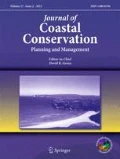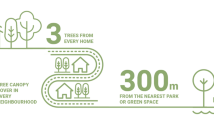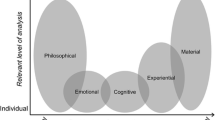Abstract
Nearly all research focused on understanding perceptions of climate-related risks to coastal resources has used data collected via mail surveys, online surveys or in-depth qualitative interviews. To compliment previous research, this study focuses on objective perceptions of climate-related risks to coastal resources as measured by respondents’ gaze behavior when viewing images describing or depicting climate-related impacts to coastal resources. We utilize data collected from a survey paired with an eye tracking session to measure perceptions of climate-related risks to coastal resources. We also compare the gaze behavior of liberals and conservatives when viewing an infographic and a digital photograph illustrating climate-related impacts to coastal resources; these included impacts to: 1) abiotic resources; 2) biotic resources; 3) built infrastructure; and 4) recreation opportunities. Survey data indicate liberal participants believed climate-related risks to all four types of impacts were more serious relative to conservative participants. However, eye tracking data revealed both liberal and conservative participants spent an equivalent amount of time viewing the four types of impacts. Consequently, differences in the extent to which liberals and conservatives perceive climate-related risks to coastal resources may be attributable to differences in how the two groups evaluate each of the specific impacts. Eye tracking data also revealed liberal participants noticed impacts to biotic resources faster than conservative participants. Conversely, conservative participants noticed impacts to built infrastructure faster than liberal participants. The practical implications of these findings are noteworthy: climate change communicators should target messages based on the predominant political ideology of their audience or include both biotic and built infrastructure impacts in their messages to capture wider audiences.


Similar content being viewed by others
Notes
Previous work has also tended to focus on direct risks to individuals (personal financial risks, personal health risks, and personal social risks). We do not focus on these personal risks in the present study given it would be difficult, albeit not impossible, to objectively assess personal risks using eye tracking technology.
It is important to note that because this sample is relatively small, our comparative statistical tests are likely to be conservative. Undoubtedly, future eye tracking research with larger samples of liberals and conservatives from more diverse sociodemographic backgrounds is warranted.
References
Ahsan D, Brandt US (2015) Climate change and coastal aquaculture farmers’ risk perceptions: experiences from Bangladesh and Denmark. J Environ Plan Manag 58:1649–1665. doi:10.1080/09640568.2014.942414
Beckley TM, Stedman RC, Wallace SM, Ambard M (2007) Snapshots of what matters most: Using resident-employed photography to articulate attachment to place. Soc Nat Resour 20:913–929. doi:10.1080/08941920701537007
Carlton SJ, Jacobson SK (2013) Climate change and coastal environmental risk perceptions in Florida. J Environ Manag 130:32–39. doi:10.1016/j.jenvman.2013.08.038
Chilvers J, Lorenzoni I, Terry G, Buckley P, Pinnegar JK, Gelcich S (2014) Public engagement with marine climate change issues: (Re)framings, understandings and responses. Glob Environ Chang 29:165–179. doi:10.1016/j.gloenvcha.2014.09.006
Choma BL, Hanoch Y, Gummerum M, Hodson G (2013) Relations between risk perceptions and socio-political ideology are domain- and ideology- dependent. Personal Individ Differ 54:29–34. doi:10.1016/j.paid.2012.07.028
Combest-Friedman C, Christie P, Miles E (2012) Household perceptions of coastal hazards and climate change in the Central Philippines. J Environ Manag 112:137–148. doi:10.1016/j.jenvman.2012.06.018
Corder GW, Foreman DI (2014) Nonparametric statistics: A step-by-step approach (2nd ed.). Wiley, Hoboken, New Jersey.
Corner A, Whitmarsh L, Xenias D (2012) Uncertainty, scepticism and attitudes towards climate change: biased assimilation and attitude polarisation. Clim Chang 114:463–478. doi:10.1007/s10584-012-0424-6
Covi MP, Kain DJ (2015) Sea-level rise risk communication: Public understanding, risk perception, and attitudes about Information. Environmental Communication. doi:10.1080/17524032.2015.1056541
Deason G, Seekamp E, Barbieri C (2014) Perceived impacts of climate change, coastal development and policy on oyster harvesting in the southeastern United States. Mar Policy 50:142–150. doi:10.1016/j.marpol.2014.05.008
Denzau AD, North DC (2000) Shared mental models: Ideologies and institutions. In: Lupia A, McCubbins MC, Popkin SL (ed) Elements of reason: Cognition, choice, and the bounds of rationality Cambridge University Press, New York, pp 23–46
Devine-Wright P, Price J, Leviston Z (2015) My country or my planet? Exploring the influence of multiple place attachments and ideological beliefs upon climate change attitudes and opinions. Glob Environ Chang 30:68–79. doi:10.1016/j.gloenvcha.2014.10.012
Elrick-Barr CE, Smith TF, Thomsen DC, Preston BL (2015) Perceptions of risk among households in two Australian coastal communities. Geogr Res 53:145–159. doi:10.1111/1745-5871.12106
Goldberg HJ, Wichansky AM (2003) Eye tracking in usability evaluation: A practitioner’s guide. In: Hyönä J, Radach R, Deubel H (eds) The mind’s eye: Cognitive and applied aspects of eye movement research Elsevier, Amsterdam, pp 493–516
Hamilton LC (2012) Did the arctic ice recover? Demographics of true and false climate facts. Weather, climate and. Society 4:236–249. doi:10.1175/WCAS-D-12-00008.1
Hamilton LC, Safford TG (2015) Environmental views from the coast: Public concern about local to global marine issues. Soc Nat Resour 28:57–74. doi:10.1080/08941920.2014.933926
Higginbotham N, Connor LH, Baker F (2014) Subregional differences in Australian climate risk perceptions: Coastal versus agricultural areas of the Hunter Valley, NSW. Reg Environ Chang 14:699–712. doi:10.1007/s10113–013–0529-0
Ho HNJ, Tsai MJ, Wang CY, Tsai CC (2014) Prior knowledge and online inquiry-based science reading: evidence from eye tracking. Int J Sci Math Educ 12:525–554. doi:10.1007/s10763-013-9489-6
Holmqvist K, Nyström M, Andersson R, Dewhurst R, Jarodzka H, Van De Weijer J (2011) Eye tracking: A comprehensive guide to methods and measures. Oxford University Press, Oxford, UK
IPCC (2014) Climate change 2014: Synthesis report. Contribution of working groups I. II and III to the Fifth Assessment Report of the Intergovernmental Panel on Climate Change, IPCC, Geneva, Switzerland
Jacob RJK, Karn KS (2003) Eye tracking in human-computer interaction and usability research: Ready to deliver the promises. In: Radach R, Hyönä J (eds) The mind’s eye: Cognitive and applied aspects of eye movement research Elsevier, Amsterdam, pp 573–605
Jost JT, Glaser J, Kruglanski AW, Sulloway FJ (2003) Political conservatism as motivated social cognition. Psychol Bull 129:339–375. doi:10.1037/0033-2909.129.3.339
Jost JT, Ledgerwood A, Hardin CD (2008) Shared reality, system justification, and the relational basis of ideological beliefs. Soc Personal Psychol Compass 2:171–186
Jost JT, Federico CM, Napier JL (2009) Political ideology: its structure, functions, and elective affinities. Annu Rev Psychol 60:307–337. doi:10.1146/annurev.psych.60.110707.163600
Kahan DM (2012) Cultural cognition as a conception of the cultural theory of risk. In: Roeser S, Hillerbrand R, Sandin P, Peterson M (eds) Handbook of Risk Theory, Springer Netherlands, pp 725–759
Kahan DM (2013) Ideology, motivated reasoning, and cognitive reflection. Judgm Decis Mak 8:407–424
Kahan DM (2014) Making climate-science communication evidence-based--all the way down. In: Boykoff M, Crow D (eds) Culture, politics and climate change Routledge Press, New York, pp 203–220
Keane R, Smith JW (2015) Information presentation of coastal morphological change: potential implications for perceptions of climate change impacts. Coast Manag 43:651–667. doi:10.1080/08920753.2015.1088762
Kellens W, Zaalberg R, Neutens T, Vanneuville W, De Maeyer P (2011) An analysis of the public perceptions of flood risk on the Belgian coast. Risk Anal 31:1055–1068
Kellens W, Zaalberg R, De Maeyer P (2012) The informed society: an analysis of the public’s information-seeking behavior regarding coastal flood risks. Risk Anal 32:1369–1381
Kim KS (2011) Public understanding of the politics of global warming in the news media: the hostile media approach. Public Underst Sci 20:690–705. doi:10.1177/0963662510372313
Lacher RG, C-O O, Jodice LW, Norman WC (2013) The role of heritage and cultural elements in coastal tourism destination preferences: a choice modeling-based analysis. J Travel Res 52:534–546
Leiserowitz A (2006) Climate change risk perception and policy preferences: the role of affect, imagery, and values. Clim Chang 77:45–72. doi:10.1007/s10584-006-9059-9
Lorenzoni I, Leiserowitz A, Doria MDF, Poortinga W, Pidgeon NF (2006) Cross-national comparisons of image associations with “global warming” and “climate change” among laypeople in the United States of America and great Britain. Journal of Risk Research 9:265–281. doi:10.1080/13669870600613658
March H, Sauri D, Olcina J (2014) Rising temperatures and dwindling water supplies? Perception of climate change among residents of the Spanish Mediterranean tourist coastal areas. Environ Manag 53:181–193. doi:10.1007/s00267-013-0177-7
Marquart-Pyatt ST, McCright AM, Dietz T, Dunlap RE (2014) Politics eclipses climate extremes for climate change perceptions. Glob Environ Chang 29:246–257. doi:10.1016/j.gloenvcha.2014.10.004
McCright AM, Dunlap RE (2011a) Cool dudes: the denial of climate change among conservative white males in the United States. Glob Environ Chang 21:1163–1172. doi:10.1016/j.gloenvcha.2011.06.003
McCright AM, Dunlap RE (2011b) The politicization of climate change and polarization in the American public’s views of global warming, 2001–2010. Sociol Q 52:155–194. doi:10.1111/j.1533-8525.2011.01198.x
McCright AM, Dunlap RE, Xiao C (2014) Increasing influence of party identification on perceived scientific agreement and support for government action on climate change in the United States, 2006–12. Wea Climate Soc 6:194–201. doi:10.1175/WCAS-D-13-00058.1
Moser SC, Dilling L (2011) Communicating climate change: Closing the science-action gap. In: The Oxford handbook of climate change and society, pp 161–174
Petrolia DR, Hwang J, Landry CE, Coble KH (2015) Wind insurance and mitigation in the coastal zone. Land Econ 91:272–295
Poole A, Ball LJ (2005) Eye tracking in human-computer interaction and usability research: Current status and future prospects. In: Ghaoui C (ed) Encyclopedia of human-computer interaction Idea Group, Pennsylvania, pp 211–219
Rayner K (2009) Eye movements and attention in reading, scene perception, and visual search. Q J Exp Psychol 62:1457–1506. doi:10.1080/17470210902816461
Reeder-Myers LA (2015) Cultural heritage at risk in the twenty-first century: A vulnerability assessment of coastal archaeological sites in the United States. Journal of Island & Coastal Archaeology 10:436–445
Reynolds TW, Bostrom A, Read D, Morgan MG (2010) Now what do people know about global climate change? Survey studies of educated laypeople. Risk Anal 30:1520–1538. doi:10.1111/j.1539-6924.2010.01448.x
Scavia D, Field JC, Boesch DF, Buddemeier RW, Burkett V, Cayan DR, Fogarty M, Harwell MA, Howarth RW, Mason C, Reed DJ, Royer TC, Sallenger AH, Titus JG (2002) Climate change impacts on U.S. coastal and marine ecosystems. Estuaries 25:149–164. doi:10.1007/BF02691304
Shakeela A, Becken S (2015) Understanding tourism leaders’ perceptions of risks from climate change: An assessment of policy-making processes in the Maldives using the social amplification of risk framework (SARF). J Sustain Tour 23:65–84
Shameem MIM, Momtaz S, Kiem AS (2015) Local perceptions of and adaptation to climate variability and change: the case of shrimp farming communities in the coastal region of Bangladesh. Clim Chang 133:253–266. doi:10.1007/s10584-015-1470-7
Sjöberg L (2000) Factors in risk perceptions. Risk Anal 20:1–11
Slimak MW, Dietz T (2006) Personal values, beliefs, and ecological risk perceptions. Risk Anal 26:1689–1705
Slovic P (1999) Trust, emotion, sex, politics, and science: Surveying the risk assessment battlefield. Percept Risk 19:689–701
Smith JW, Bitsura-Meszaros K, Keane R (2016) Differences between conservatives and liberals in information-seeking behavior and perceived risks associated with climate-driven changes to local forest conditions. Wea Climate Soc 8:43–55. doi:10.1175/WCAS-D-15-0046.1
Stedman RC (2003) Is it really just a social construction?: The contribution of the physical environment to sense of place. Soc Nat Resour 16:671–685. doi:10.1080/08941920309189
Tobler C, Visschers VHM, Siegrist M (2012) Consumers’ knowledge about climate change. Clim Chang 114:189–209. doi:10.1007/s10584-011-0393-1
Wang M-Z, Amati M, Thomalla F (2012) Understanding the vulnerability of migrants in shanghai to typhoons. Nat Hazards 60:1189–1210. doi:10.1007/s11069-011-9902-9
Weingart P, Engels A, Pansegrau P (2000) Risks of communication: discourses on climate change in science, politics, and the mass media. Public Underst Sci 9:261–283. doi:10.1088/0963-6625/9/3/304
Whitmarsh L (2011) Skepticism and uncertainty about climate change: dimensions, determinants and change over time. Glob Environ Chang 21:690–700. doi:10.1016/j.gloenvcha.2011.01.016
Wiest SL, Raymond L, Clawson RA (2015) Framing, partisan predispositions, and public opinion on climate change. Glob Environ Chang 31:187–198. doi:10.1016/j.gloenvcha.2014.12.006
Wolf J, Moser SC (2011) Individual understandings, perceptions, and engagement with climate change: insights from in-depth studies across the world. WIREs. Clim Chang 2:547–569. doi:10.1002/wcc.120
Wong PP, Losada IJ, Gattuso J-P, Hinkel J, Khattabi A, McInnes KL, Saito Y, Sallenger A (2014) Coastal systems and low-lying areas. In: Field CB, et al. (eds) Climate change 2014: Impacts, adaptation, and vulnerability. Part A: Global and sectoral aspects. Contribution of Working Group II to the Fifth Assessment Report of the Intergovernmental Panel on Climate Change. Cambridge University Press, Cambridge, UK and New York, pp 361–409
Acknowledgments
This research was supported by NC State University’s Center for Geospatial Analytics. The authors would like to acknowledge Dr. Laura Tateosian and Ms. Michelle Glatz for reviewing previous versions of the manuscript and assisting with data collection. The authors would also like to acknowledge Rosemary Keane for assisting with data collection.
Author information
Authors and Affiliations
Corresponding author
Rights and permissions
About this article
Cite this article
Smith, J.W., Bitsura-Meszaros, K., Seekamp, E. et al. Political ideologies and the objective measurement of climate-related risks to coastal resources. J Coast Conserv 20, 409–422 (2016). https://doi.org/10.1007/s11852-016-0455-7
Received:
Revised:
Accepted:
Published:
Issue Date:
DOI: https://doi.org/10.1007/s11852-016-0455-7




